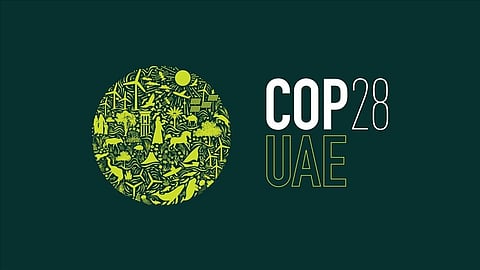Insight: How Will COP28 Change the Middle East?
The Middle East is at the forefront of the sustainability conversation, with Egypt recently hosting global sustainability thought-leadership conference COP27, and Dubai set to do the same later in 2023 with COP28. Add to this the major plans the region has for new models of sustainable living, working and operating, and we have a major revolution at our door.
This piece looks into the key themes regarding the global sustainability conversation, before drilling down to the Middle East to explore the changes that are coming to a town near you, specifically with regard to logistics.
And believe us, these changes are very significant indeed.
Sustainability: The Global Conversation
The United Nations (UN) has highlighted 5 key takeaways from COP27 that have shaped the global narrative to be continued in Dubai in November/December.
The first of these was the breakthrough 'loss and damage' fund that looks to provide support for vulnerable countries hit hard by floods, droughts and other climate-related disasters.
The key element of the conversation to be continued in Dubai is who should pay into the fund, where the money will come from, and which countries will benefit.
The second major takeaway was to limit climate change to a 1.5% increase, meaning emissions peak in 2025, and see a massive 43% reduction by 2030.
The third major takeaway was holding businesses to account, while the fourth focussed on mobilising support for developing countries.
The fifth and final takeway was that of 'implementation', i.e., making sure the advised changes actually happen.
What to Look For in Dubai
As you may have intuited from COP27, a major focus at present is on finance and feasibility, as well as accountability.
Henceforth, COP28 is likely to focus heavily on diplomacy, that is, forming and managing international relations to ensure a desired outcome.
In simple terms, this means the global order uniting to put pressure on businesses and individuals who talk-the-talk but do not walk-the-walk.
Another key issue is likely to be the aforementioned climate financing for those hit hardest by climate change, and following on from this, a major arena for this logistics market will be supply chains.
The Agriculture Innovation Mission (AIM) for Climate initiative, led by the UN, USA & UAE, is likely to be a key driver at COP 28, as we explore new models of food production and security.
Finally, expect to see major conversations on the health of our oceans - again, a big issue for those in the supply chain - as well as the growth of resilient systems to handle projected temperature changes.
Sustainability in the Middle East
Given UAE President His Highness Sheikh Mohamed bin Zayed Al Nahyan has announced that 2023 is the “Year of Sustainability”, one can see the commitment to green change from the very top levels of the Middle East.
Saudi Arabia, too, has made it a core pillar of its future with its Saudi Green Initiative (SGI), the initiaitve works on "...increasing Saudi Arabia’s reliance on clean energy, offsetting emissions, and protecting the environment, in line with Vision 2030. It aims to improve quality of life and protect future generations," according to a press release.
Meanwhile, the "Year of Sustainability" in the UAE looks to promote sustainable practices at an individual and community level.
Notable examples include the "Net Zero by 2050 Strategic Initiative", which details the country's commitment to promote environmental protection, and its efforts to create thriving communities ideal for living and working.
Oman has also pledged to be carbon neutral by 2050, while Qatar has made sustainability a key part of its Transportation Master Plan 2050.
Sustainability in Logistics
The Middle Eastern logistics sector is in a very strong financial and operational position, yet given the emissions from oil output and an increasingly large supply chain, the region has major challenges to address.
One of the main challenges is in achieving efficient energy use in what is mostly a desert, this will not be easy and will require much ingenuity, all while pressure mounts on the region to fulfill its commitments to green change.
This is perhaps why governments around the region have made major plans to change how logistics sectors operate, with an equally strong commitment to inspiring businesses and local communities.
The logistics sector of the Middle East also has the problem of being specific around its aims, as standards haven't been truly set yet, it's difficult to make a firm plan on what exact action to take.
Yet in the meantime, businesses and individuals in the region will be expected to adopt new green technologies, utilize sustainable fuels where possible, and commit to recycling.
Another key area for change will be building materials and techniques used, with the Middle East ever-keen on new builds and new projects, such operations will be under the microscope.
Read more: Sustainable Shipping: Arriving Soon at a Port Near You?


